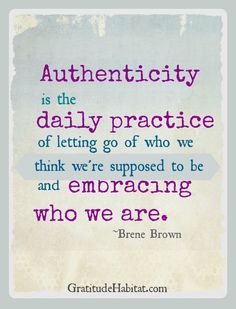I’m a writer in my free time, and because of that, I’m a member of a few different online writing groups, places writers go to ask for advice and share ideas. One of the questions that comes up over and over again is ‘How do I market myself as an author?’, and my answer is always the same: branding.
Branding is an unfamiliar, and sometimes uncomfortable, idea for writers, as it is for all creative professionals (dancers included). We want to be known for our art, but figuring out what to say about that art, or even sticking a label on what we bring into the artistic world, isn’t something that comes easily. Talking about ourselves, where we come from and what drives us to succeed, is intimidating. But, as a professional, it’s something that we have to learn how to do, and how to do it well.
What is Brand, Anyhow?
What is your artist brand? If you’re a professional dancer, or if your goal is to become a professional dancer, you need to have a brand and you need to know how to share that brand with your audience. In it’s simplest definition, your brand is your identity. It’s a mark. Products have brands (what characteristics do you associate with your favorite shoe brand?), and celebrities all have personal brands, of course, but the rest of us do, too. Sue is shy, but smart. John is a great dad and competitive business professional. We associate different traits with the people in our lives all of the time. Branding is deciding what characteristics you want people to associate with your work as a dancer (your brand), and then sharing that brand with others.
Write Your Definition
The first step in developing your personal brand as a professional dancer is to write your definition. What makes you unique? How do you want people to perceive your professional self? What do others say about you? What experience do you offer when you perform? You need to be able to define who you are and what you do, and to do that, you need to be able to answer those four questions. Craft your response into something that will roll off your tongue in 30 seconds or less. This is your brand statement. It’s what you’re known for. Take time to figure this out. Spend a week thinking it over, if you have to. Write it down and practice it in the mirror, and then be prepared to share it.
Tell Your Story
People love stories. It’s programmed into us, from the very first fairytale we hear growing up. Your brand is your story. Why do you do what you do? What led you down your path? No two people have traveled the same road; make yours part of the story that you tell your audience.
That doesn’t mean that you should stand on stage and monologue, but when you do interact with your audience, whether through digital channels (Facebook, blog posts, and so forth) or in person, don’t be afraid to have a story to tell. Make it true, and make it compelling. And then, when you do interact, make sure that what you do and say matches the the story you’re trying to tell.
Be Authentic
If artists struggle with branding, it’s not usually because they aren’t good at communicating with their audience. The trouble comes in when they try to develop a brand that doesn’t stay true to who they are. It’s tempting to follow the current trends and try to blend in. But if that’s not who you are, you’re denying yourself (and your audience) the opportunity to see where you shine. That sounds like something from a cheesy motivational poster, and it probably is, but it’s also true.
Look, your audience can tell when you’re not authentic. It’s like wearing clothes a size too small; you might get the zipper pulled up, but it’s not going to look (or feel) comfortable. Your brand isn’t who you wish you were. It’s the best of who you are now. That’s why it’s so important to craft your definition before you start to share your brand. If you aren’t creating an authentic brand, or if you aren’t staying authentic to your brand statement, trying to connect with your audience will feel like work. You’re going to struggle. Avoid all of that by creating a brand based on who you are, not who you think
Take it Seriously
Branding isn’t a one-day process. It needs to become a part of your everyday life. Even if the most you can give is 15 minutes a day, you need to make time to actively develop and promote your brand. Get out there and interact. Meet people (online or off). Make connections. Invest in the development of your personal brand. You’ll have a brand whether you put time into developing one or not, but by developing it yourself, you can be in control of what that brand is. It’s your story, not the one that others created for you.
Three Steps You Can Take Today to Improve Your Brand:
Ready to get started with building your brand? These three simple steps will get you started:
- Get social. If you don’t already have active profiles on Twitter, Facebook (use a brand page), Instagram, and Youtube, build one. These profiles should be an extension of your professional self; use them accordingly. Share news, videos and relevant pictures, updates on your upcoming performances, and anything else relevant to your artist brand. Share something every day, and then interact with your followers. Social media marketing is a two way street.
- Create an email list. This is easier if you have a website first. If you don’t have one, start there. If you already have a site, setting up a newsletter signup form is quick and easy, and it gives you a very efficient and effective way to reach your audience.
- Research small business marketing strategies. As an artist entrepreneur, you need to get into the mindset of treating your dance like a business. Pick up a marketing book or two. Follow a couple of marketing blogs. You don’t need a marketing degree to market yourself, but you do need to take the time to learn the basics.
Questions? Comments? Share your thoughts in the comment section below!
Inspirational Corner:

